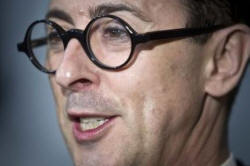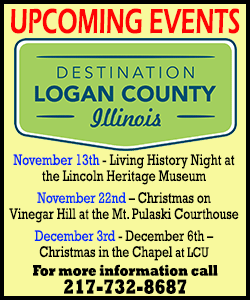|
 Book
Talk: Alan Cumming believes in putting everything out
there Book
Talk: Alan Cumming believes in putting everything out
there
 Send a link to a friend
Send a link to a friend
[October 31, 2014] By
Jim Finkle
BOSTON (Reuters) - Scottish
actor Alan Cumming has won accolades for his
performances, including current stints as a manipulative
Chicago political operative on TV's ďThe Good WifeĒ and
a revival of his Tony-winning role in the Broadway
musical ďCabaret.Ē
|
|
 In his memoir, ďNot My Fatherís Son,Ē he describes his
painful childhood growing up on a country estate on the east
coast of Scotland where his abusive father was the head
forester. In his memoir, ďNot My Fatherís Son,Ē he describes his
painful childhood growing up on a country estate on the east
coast of Scotland where his abusive father was the head
forester.
Cumming also tells the story of one of the most turbulent
periods of his life: The summer of 2010 when his decision to
appear on a popular UK celebrity genealogy program led him to
discover a secret about his birth.
Cumming, 49, spoke with Reuters about the book and his writing
future.
Q: Some of the experiences you describe are so painful.
Why share them?
A: Iím about to turn 50 and I felt like I just wanted to
put everything out there. My whole credo about how to deal with
being in the public eye has always been to be honest and open.
And with this huge amount of information that people didnít know
about me, I just wanted to put it out there.

Q: Why be so open with the public about your personal
life?
A: Iíve had various horrible engagements with the press
where Iíve tried to not talk about certain things. In a way you
invite speculation, I think. Thatís when people can get really
nasty and your life can be really affected in an adverse way.
Q: Much of the book focuses on what happened to you after
your father told you that you were not his son when you were
doing the British TV show ďWho Do You Think You AreĒ in the
summer of 2010. Do you regret doing that show?
A: At one point I regretted it, when I discovered my
grandfather had died playing Russian roulette. The first thing I
thought was, ĎIím going to have to tell my mother this. I wish I
have never started this journey.í
Ultimately it was a very inspiring and beautiful thing to do.
The lessons I learned from it brought my mom and brother and I
closer together.
[to top of second column] |

Q: You describe some pretty intense bullying episodes in the
book. Was it painful to write about?
A: Obviously itís a painful memory. There are painful
memories I share in the book. It was difficult to read the audio
book of it. But itís definitely a cathartic thing.
Writing this book you stand back from yourself and learn lessons. I
think one of the biggest lessons I learned is that I have overcome a
thing that could obviously have been quite debilitating to my life.
I think thatís a really good message to put out to people who could
perhaps be in a similar situation - where it seems the problems you
are facing are insurmountable and you are never going to be your own
person and be happy. Itís possible to be happy. That was the most
positive thing about writing it.
Q: You seem to have a wonderful sense of humor. Where did
that come from?
A: I am a happy person. Being Scottish I think we have a good
sense of humor. Humor is a big part of how we communicate.
All my life I have been able to joke about things. When you think
the worst things that could happen to you in your life have already
happened, it kind of grounds you and gives you a better perspective
on things: what to take serious and what not to take serious.
Q: Are you working on any other books?
A: There is one in my future that Iíve got to finish. Itís a
book of photographs Iíve taken and also the stories behind them.
(Editing by Patricia Reaney and Nick Zieminski)
[© 2014 Thomson Reuters. All rights
reserved.] Copyright 2014 Reuters. All rights reserved. This material may not be published,
broadcast, rewritten or redistributed.
 |